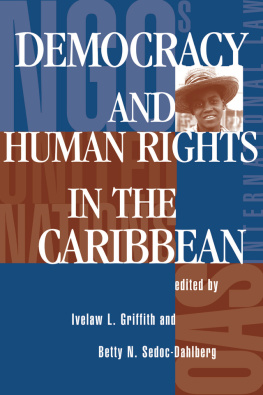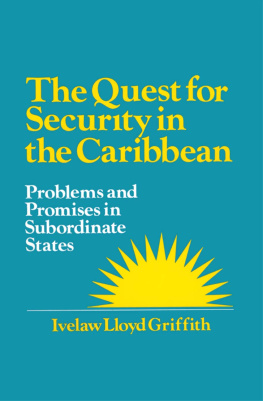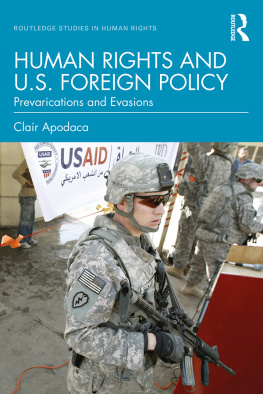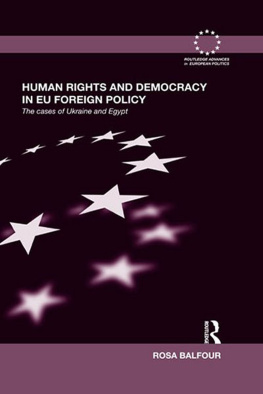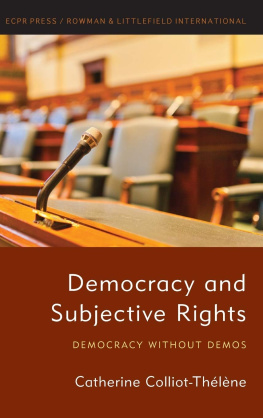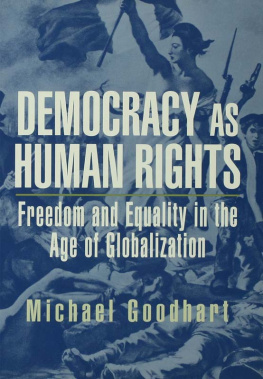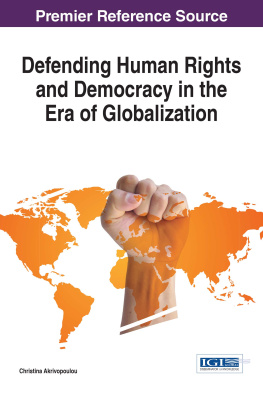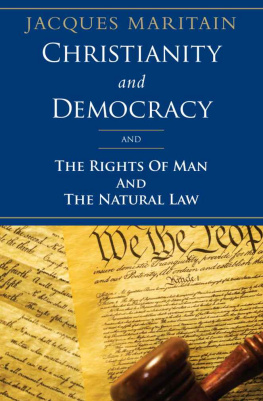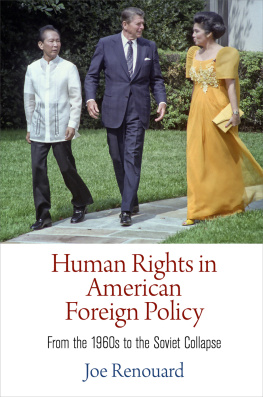First published 1997 by Westview Press
Published 2018 by Routledge
711 Third Avenue, New York, NY 10017, USA
2 Park Square, Milton Park, Abingdon, Oxon OX14 4RN
Routledge is an imprint of the Taylor & Francis Group, an informa business
Copyright 1997 Taylor & Francis
All rights reserved. No part of this book may be reprinted or reproduced or utilised in any form or by any electronic, mechanical, or other means, now known or hereafter invented, including photocopying and recording, or in any information storage or retrieval system, without permission in writing from the publishers.
Notice:
Product or corporate names may be trademarks or registered trademarks, and are used only for identification and explanation without intent to infringe.
A CIP catalog record for this book is available from the Library of Congress.
ISBN 13: 978-0-8133-2135-6 (pbk)
ISBN 13: 978-0-8133-2134-9 (hbk)
1
Introduction: Democracy and Human Rights in the Caribbean
Ivelaw L. Griffith and
Betty N. Sedoc-Dahlberg
In 1984 Samuel Huntington began to explore closely the question of whether more countries would soon become democratic. The democratization question was not entirely irrelevant to the Caribbean, however, for there were countries outside the democratic fold, namely Cuba, Haiti, and Suriname, as well as countries with the structural features of democracy but in which functional democracy was either in jeopardy or in crisis, such as Guyana and the Dominican Republic.
The course of events around the world since 1984 has shown that the response to Huntington's question has been in the affirmative. Whereas 34 percent of the independent nations of the world were declared "free," and 31 percent "partly free" by Freedom House in 1984, by 1994 the proportions had grown to 40 percent and 32 percent, respectively. This democratic momentum has not bypassed the Caribbean. Guyana has been welcomed into the democratic comity since October 1992, Haiti is undergoing democratic (re)construction, and domestic and international forces have been combining to force the Dominican Republic and Suriname to resolve their democracy crises. Cuba, then, is the only Caribbean country squarely outside of the democratic camp.
Despite or perhaps because of the impressive record of democratic politics in the Caribbean, there has long been considerable interest in the subject of Caribbean democracy, from theoretical as well as empirical vantage points. The democratic explosion that the hemisphere and other parts of the world have witnessed since the late 1980s has further stimulated intellectual interest in the subject, and a large number of books, conferences, and journal articles devoted to democracy and allied subjects have appeared since the mid-1980s. One of the allied subjects has been human rights.
Some Approaches to Democracy and Human Rights in the Caribbean
There is, of course, no single approach to the study of democracy, or of human rights, or of the democracy-human rights nexus. The most popular approach to democracy among contemporary Caribbean social scientists, though, is the Schumpeterian approach, which sees contestation and participation as the central denotative features of democracy.
The Schumpeterian approach reflected in these definitions sees democracy essentially as electoral democracy, and we accept that elections are central to democracy. But because they are periodic contestations in which interest aggregation and representation are centered on political parties or individual contestants, it is important to extend the definition of democracy to account for participation and policy choice on a continual basis and beyond parties, to interest groups and other social movements.
Elections are a critical legitimizing mechanism for democracies, and hence they are a requirement of democracy, and they must be free and fair. Never
For us, a democracy requires not only free and fair elections with the results accepted by the various constituencies in the society but also the exercise generally of civil and political rights unencumbered by the instruments of state coercion. Hence a democratic environment should permit scope for political participation, access to decisionmakers and institutions of government, responsiveness by political rulers, and opportunity for economic development. Other attributes would include functional judiciaries and uncensored media. There would of course be conflict in such an environment, but conflict management mechanisms are required to prevent the resort to violence by individuals and groups for dispute resolution.
Irrespective of whether one embraces the Schumpeterian approach, the broader one we offer, or one based on economic determinism,
There are several philosophical approaches to this human-rights aspect of the relationship between individual, state, and society. Scholarship on the subject points to three basic philosophies: conservatism, liberalism, and communalism. Conservatism is essentially a philosophy of unequal rights. In the West, classical conservatism is associated with Edmund Burke, although its roots can be traced to Plato and The Republic, where the best system of rule was posited as that by a philosopher-king whose governance would be unchecked by the popular will or law. The central tenet of liberalism, in contrast, is a belief that the highest good or value is individual well-being and that personal well-being is founded on freedom and equality.
Two schools of thought are associated with the liberal philosophy. The first is the natural-law school, which holds that humankind is naturally free and equal, with certain inalienable rights. The second school, utilitarianism, posits that the pursuit of human happiness and welfare through freedom and equality is the highest good. Utilitarianism became group welfare through individualism, with the group determining what was good for the individual. But to counteract tyranny by the majority, individual freedom and equality became valued in and of themselves, even though they limited majority rule, the test for goodness being "the greatest good for the greatest number."
The third approach is communalism, or the solidarity school, which sees rights as stemming from membership in a community or group. Marxism is one strand of this philosophy, and it contends that individuals are defined by socioeconomic class. Societies are composed of various classes, and struggle in this context involves class conflict. In capitalist societies the working class is the engine of economic maintenance. Therefore, the argument goes, its rights should take precedence over those of other classes, especially the exploitative bourgeoisie.

